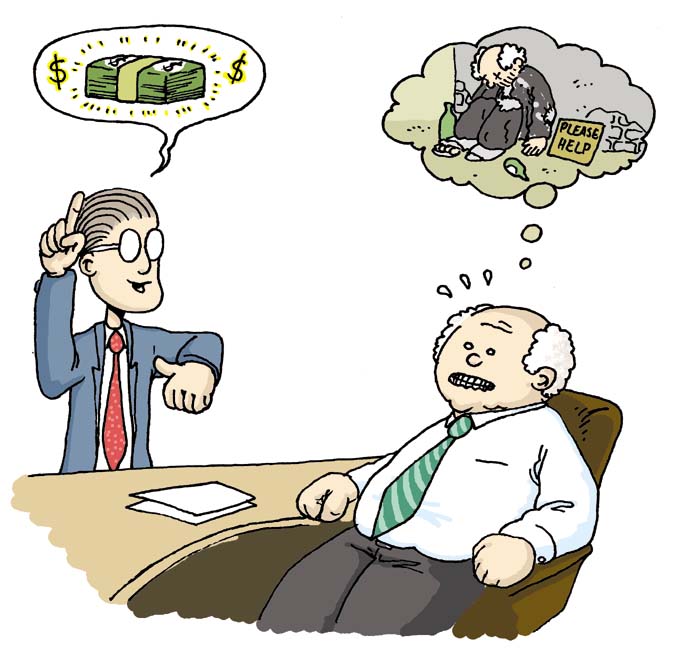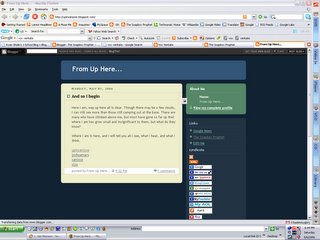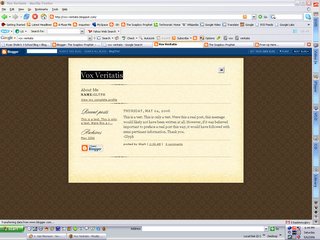I Admit
First off, sorry about the bad pun... I admit, I'm a dork.
Secondly, Steve Sloan, Shaminder Dulai, Daniel Esch, Ryan Sholin, Cynthia McCune and I will be podcasting at Tony Soprano's Pizza in San Jose at 6:00 pm on May 23rd.
(That's a couple writers from the Spartan Daily, some teachers and some bloggers for those of you who don't know who they are yet.)

The topic will be J163, a new class that will be taught by Sloan next year. The course is intended to teach,"new media in Journalism (blogging, podcasting, RSS & other Web 2.0
technologies)."
Sweet stuff that the University should have picked up on in 1997.
Oh well.
Better late than never, huh.
Sloan has asked for some of our input on what to teach, and being the geek that I am, I'm more than willing to give my two cents.
WHAT'S THE BIG DEAL ABOUT THE WEB ANYWAYS?
Okay, anyone remotely tech saavy at SJSU will understand when I write that most of the faculty have no understanding about what's going on online, or how it's going to affect their particular field.
The world just got too flat too fast for everyone to fully grasp that little kicker yet.
In fact, many students I know have an understanding of this far beyond any of their teachers.
Don't feel stupid though (although you're probably not reading this anyways, since you don't read blogs yet... *sigh*), the old media and businesses haven't done their homework yet either.

An interesting post by Liz Dunn of Technorati makes this point very clearly, leaving the impression that professionals (and teachers, in this case) are missing out on a conversation that's been happening right under their noses... and it's one they literally can't afford to miss anymore.
SO WHAT SHOULD SJSU BE TEACHING?
First off, if there's any books assigned to students during the course, The World is Flat must be at the top of the list.
It's the new history book for convergence, and it's also a glimpse of the world awaiting students in the next two or three years.
the new history book for convergence, and it's also a glimpse of the world awaiting students in the next two or three years.
Aside from that, the course should be getting students up to date with basic stuff like blogging on services such as Blogger or Wordpress, and familiarizing them with linking sites like Technorati.
And while they're at it, students should be able to set up RSS and OPML feed and tree buttons on their sites. This means giving them a basic understanding of HTML, at least to the point where students can cut and paste photos, link sites and rearrange formats.
It may be stretching it after all this if the class is computer illiterate to start with, but making them vod or podcast would go a long way to making them web 2.0-literate. Google Video offers unlimited video services, so space wouldn't be an issue.
And since books wouldn't be a big issue either for such a class, a cheap webcam or digital voice recorder wouldn't break student's piggy banks.

Besides, I'm sure a company like SONY or OLYMPUS would love to give SJSU students a discount if it could guarentee repeated business with them in the years to come.
YOU WANT TO EAT YOUR CAKE TOO?!
And here's a thought - since Universities are supposed to be born out of the same concepts that OpenSource was forged from, it might not be such a bad idea to get them familiar with OpenSource Pull technologies like Wikipedia, Dictionary.com, and Craigslist.
Not to mention all the cool little AJAX programs you can mod browsers like Mozilla with... does anyone even use Opera or IE anymore? Sorry, tangent.

The point is that Pull technologies are redefining the business model in pretty much every field, and the more comfortable students become with accessing information and interacting with clients in this way, the better off they'll be after college.
$HOW ME THE MONEY!!!
Lastly, a little discussion about new business models and reference to how the internet is affecting business (especially the newspaper biz) with some advice on how to make information profitable would be nice.
There's a lot of pessimism out in the journalism community right now, and not enough people are plugging the upside of Web 2.0 technologies on journalism.
That's my rant for now.
Any comments or something I left out?
sjsu
soapbox prophet
andrew venegas
steve sloan
podcasting
web 2.0





















